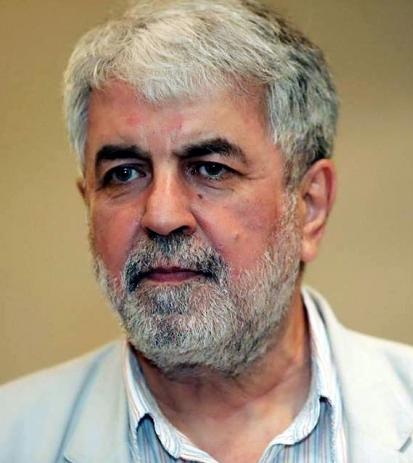Director of the Institute
 Garnik Asatrian
Garnik Asatrian
Director of the Institute of Oriental Studies of the Russian-Armenian University - Doctor of Philology, Professor
Professor Garnik Asatrian organizes the educational process of the four directions of the Institute and the scientific and educational activities of the instructors, represents the Institute in the managerial bodies of the university, international scientific centers.
The recognized scientific school of Oriental Studies Professor Garnik Asatrian has a wide international authority and is integrated into large-scale international scientific projects.
Professor Asatryan is the founder and editor-in-chief of a number of scientific periodicals and academic series, including one of the most rated peer-reviewed international journals Iran and the Caucasus (Brill: Leiden-Boston; indexed in SCOPUS, Web of Science and a number of other scientometric systems; based in 1996, https://brill.com/view/journals/ic/ic-overview.xml, as well as the Russian-language yearbook Труды Института Востоковедения РАУ: Caucaso-Caspica (indexed in РИНЦ), the international Yerevan Oriental Series that includes brief monographic works, and Studies on Caucasian-Caspian Literature (Pažūhešhā-ye zabānī-adabī-ye Qafqāz va Kāspiyan), a quarterly journal published in Persian in Tehran together with the Great Islamic Encyclopedia. Professor Asatryan is at the same time the founder and editor-in-chief of the Armenian orientalist magazine Iran-Name, published in Armenian since 1993.
The director of the Institute of Oriental Studies, RAU has significantly contributed to the organization of humanity science in Armenia. He headed the Departments of Eastern Philology (1983-1989) and Iranian Studies (1989-1996) of the Institute of Oriental Studies of the Academy of Sciences of Armenia. From 1997 to 2015, he was the head of the department of Iranian studies at Yerevan State University; in 1996 he founded and ever since has been the head of the Caucasus Center for Iranian Studies in Yerevan, and since 2014 - the Institute of Indigenous Peoples of the Caucasus-Caspian Region.
G. Asatrian is the author of dozens of scientific monographs and teaching manuals, hundreds of articles published in different languages. Dozens of graduate students from different countries defended their dissertations under his supervision.
Garnik Asatrian's contribution to the study of ethnic minorities and indigenous peoples of the Caucasian-Caspian area and Eastern Anatolia is significant. A number of special areas, in particular, Kurdology, Yezidi Studies, Zaza Studies, Talysh Studies, ethno-confessional communities in Western Asia and others are the traditional currents of the oriental school of the Institute of Oriental Studies of the RAU.
The high reputation of this school is based on rigorous academic research, combined with innovative methods of work. An integral part of the research laboratory of the Institute of Oriental Studies of RAU is regular scientific expeditions to Iran, Afghanistan, Turkey and other countries of the region.